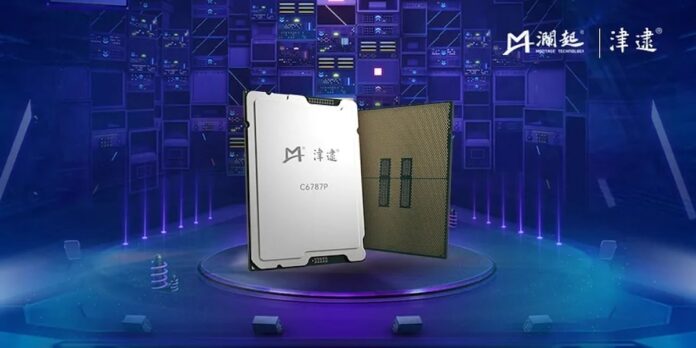In the realm of global technology, the competition between the United States and China has reached new heights with the introduction of the sixth generation of Jintide C6P processors by the Chinese company Montage Technology. These chips, derived from the renowned Intel Xeon 6P Granite Rapids architecture, have been specifically designed for the Chinese market, with improvements in security and control.
This development marks a step forward in China's efforts to achieve technological self-sufficiency in crucial areas such as data centers, artificial intelligence, and government infrastructure. A key piece in understanding this advance is the agreement signed by Montage Technology with Intel and Tsinghua University in 2016, which allows the company to adapt Xeon processors with China-specific functionalities.
The Jintide C6P, based on the Xeon 6787P, offers considerable power with up to 86 cores and 172 threads, in addition to a memory subsystem designed for intensive artificial intelligence and data analytics tasks. Among its features, the standout is the support for two-socket configurations, latest-generation memory, and a significant number of PCIe 5.0 lanes compatible with CXL 2.0, which facilitate high-speed connections to GPUs and AI accelerators.
One of the most notable distinctions compared with Western Xeons is the Jintide's enhanced security layer, which incorporates proprietary encryption algorithms and tools for measuring trust on the platform. These features are aligned with China's strict privacy and security regulations in critical sectors such as banking and healthcare.
The Jintide C6P announcement underscores China's renewed effort to reduce its dependence on foreign technology, while strengthening control over its digital infrastructure. In the West, the introduction of these custom chips raises concerns both about their capabilities in large-scale cloud services and about cybersecurity implications.
Montage Technology, aware of the importance of a robust tech ecosystem, collaborates with open-source software communities in China, such as openEuler and OpenCloudOS. Additionally, certification with local cloud and database providers facilitates integration into strategic sectors.
Stephen Tai, president of Montage Technology, stated that the Jintide C6P represents a dual advancement in computational power and chip-level security, aiming to offer customers a competitive option for digital transformation in China.
This advancement is not only a reflection of China's growing technological potential, but also a new facet in the geopolitical rivalry with the United States in the realm of semiconductors and artificial intelligence.
More information and references in Cloud News.



